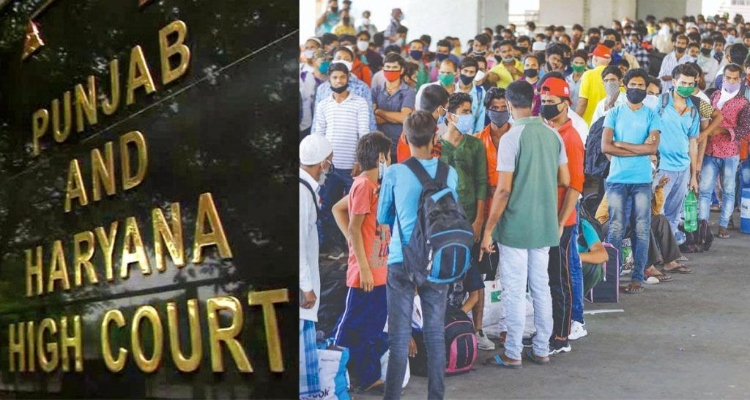
The Punjab and Haryana High Court recently invalidated a Haryana law that mandated 75% of private sector jobs, offering salaries up to ₹30,000 per month, for local candidates. This decision, declaring the law unconstitutional, served as a setback to the Manohar Lal Khattar government less than a year ahead of assembly polls.
A two-judge bench of the high court deemed the 2021 law unconstitutional and in violation of Part III (fundamental rights) of the Constitution. Justices GS Sandhawalia and Harpreet Kaur Jeewan mentioned that individual rights must align with the Constitution’s text and spirit rather than popular or majoritarian beliefs.
The verdict, spanning 83 pages, emphasized, “The state cannot compel private employers to act against the principles laid down in the Constitution of India. Discrimination based on not belonging to a specific state violates the fundamental rights of citizens.”
Moreover, the court cautioned against the potential replication of similar legislation in other regions, stating that it exceeds the state’s authority to regulate and restrict a private employer’s recruitment processes in the open market.
Following the ruling, Haryana’s Deputy Chief Minister Dushyant Singh Chautala expressed the state government’s intention to approach the Supreme Court after reviewing the detailed judgment.
Industry representatives across the state applauded the verdict, denouncing the law as anti-business and detrimental to entrepreneurship.
Former President of the Gurgaon Industrial Association, JN Mangla, supported the court’s decision, asserting the fundamental rights of workers and industry owners. He emphasized the right of every individual from any part of the country to work in Haryana without discrimination.
Enacted in 2021, the Haryana law reserved 75% of jobs paying up to ₹30,000 per month for “local candidates,” defined as individuals domiciled in Haryana. The law, applicable to various private entities, came into effect on January 15, 2022, for a duration of 10 years but had been temporarily halted by the high court earlier.
The court underlined that the Constitution prohibits discrimination in employment based on place of birth or residence, criticizing the legislation for creating artificial divisions among Indian citizens.
Petitioners, including industry bodies, argued that the law was unconstitutional due to its vagueness, arbitrariness, and infringement upon the merit-based principles crucial for business competitiveness and productivity.
The Haryana government defended the law in court, asserting its necessity to safeguard the livelihood and health of domiciled individuals in the state. However, the court maintained that the law curtailed the right to free movement and settlement within India’s territories.
The domicile reservation law, a significant electoral promise of the Chautala-led Jannayak Janta Party (JJP), aimed to protect local interests. It was championed by the BJP-JJP coalition government but was invalidated by the court.
Congress Rajya Sabha MP Deepender Hooda criticized the law’s framing and the government’s defense, insinuating ulterior motives behind the legislation.




